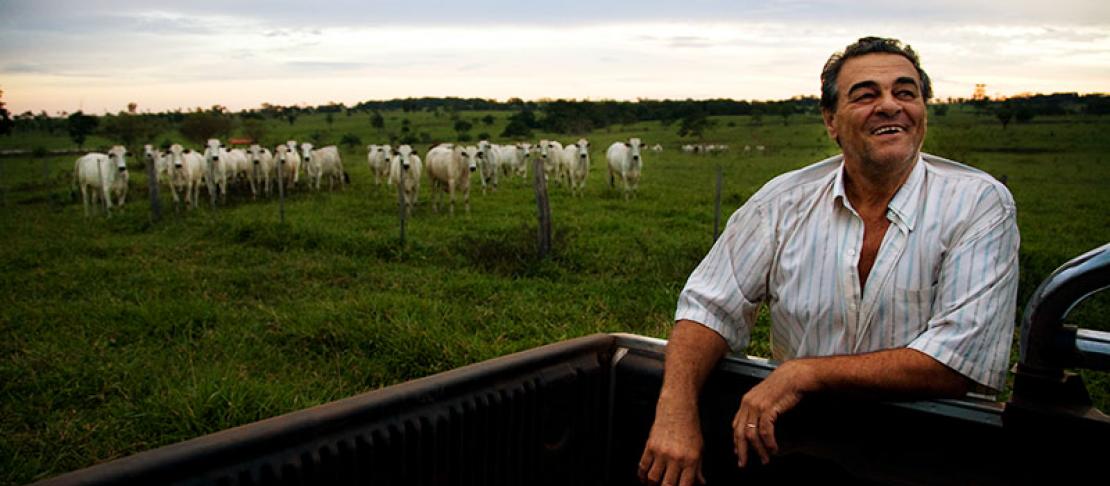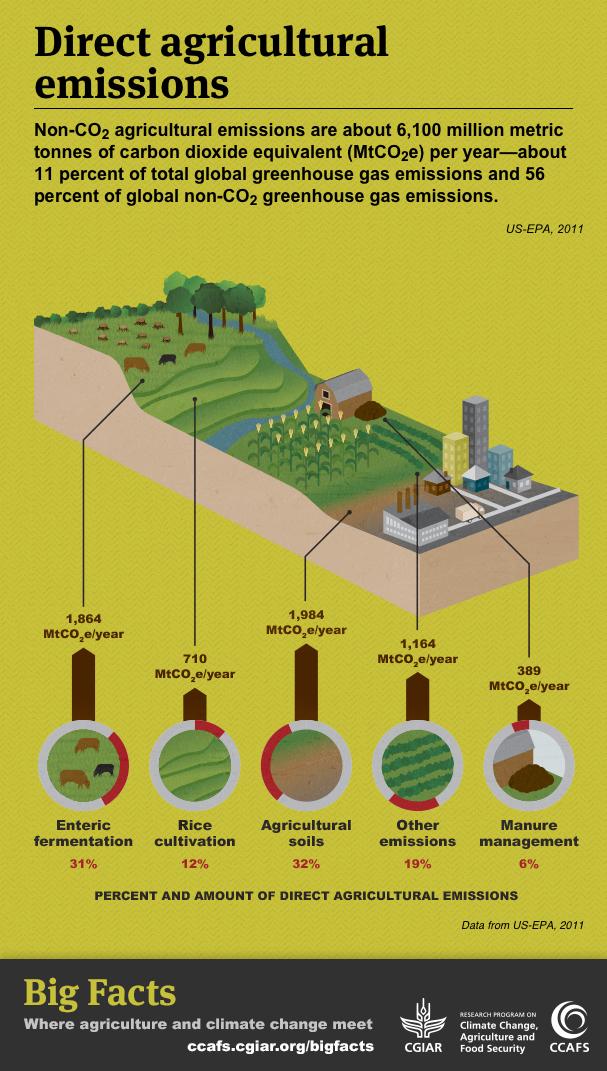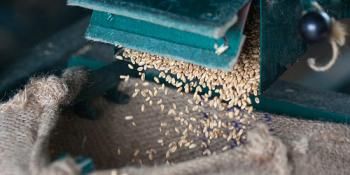Beefing up sustainable agriculture production in Brazil

Cattle ranching in Brazil is a major cause of deforestation. But sustainable production chains could be within our reach.
Brazil has one of the greatest growth rates of beef production in the world according to recent research. As a result, up to 75% of deforestation in Brazil is related to expanding cattle ranches. Needless to say, as demand for meat products is steadily increasing, we urgently need to find ways to engage farmers in sustainable production instead of continuing in the same footsteps.
While livestock farming and oil palm plantations might produce the goods we want – meat, margarine, shampoo, lipstick and ice-cream – the trade-offs are a harsh reality with clear-cut forests and diminishing biodiversity. In addition, these activities, including production of bioenergy products, are also clashing with climate change mitigation goals. The bioenergy issue is still the elephant in the room as it is compromising food security and forest cover in the name of mitigation.
So which way forward for getting farmers onboard in creating sustainable  production chains? How do we achieve forest and ecosystem preservation with increased food production and income for all?
production chains? How do we achieve forest and ecosystem preservation with increased food production and income for all?
Turning this unsustainable commodity agricultural production around might seem like an impossible task, but this has not deterred researchers from looking at ways to promote and enhance agricultural sustainability and to reduce deforestation.
Researchers Peter Newton and Helena Alves-Pinto, working under the CCAFS Low-Emissions Agriculture theme, recently held a Technical and Networking Session on Managing landscapes for food, fuel, fiber and forests. The session took place at the Global Landscapes Forum, alongside the global Climate talks in Warsaw.
Together with colleagues from University of Michigan and the Forest Dialogue, Peter and Helena shared insights from a recently released a paper, Certifying sustainability: opportunities and challenges for the cattle supply chain in Brazil The paper analyses farmer engagement with the Standard for Sustainable Cattle Production Systems certification program and other interventions associated with livestock and deforestation in Amazonia.
Learn more about the paper: Breaking the link between commodity agriculture and deforestation
WATCH THE LIVE-STREAMED SESSION:
The authors fleshed out some lessons learned on the challenges and opportunities for sustainable cattle ranching, concluding that there is an “urgent need to get people, companies and governments to better understand how to value eco-systems when making land-use decisions!”
The sustainability certification project, led by the Sustainable Agriculture Network (SAN), has identified major obstacles to get farmers engaged and seeing the value of the project.
One obstacle is the rules and limitations in order to be a certified cattle rancher. In order to be a certified SAN cattle ranch farm, the farms cannot have engaged in deforestation after 2005. This however limits the number of farms that can be given the certification, especially if they operate large farms. This standard might prevent many farmers from joining, and slow the rate of the certification
But the large Brasilian market’s newfound interest for “sustainable meat” has provoked farmers to jump and change practices, in order to stay competitive. One proposed solution is to concurrently increase demand for – and supply of – sustainable products. But can that be done? And how to move forward to make this happen? This is easier said then done, though panellists mentioned the idea of increasing the supply of certified beef by a stronger initial focus on the export market, as demand for these types of products are higher in for instance Europe. Thus there is a potential market waiting to buy sustainable products.
Another concern is changing people’s diets and consumption behaviours in order  to reduce the continuous increase in meat consumption and its consequence - methane emissions.
to reduce the continuous increase in meat consumption and its consequence - methane emissions.
Although initiatives, such as the SAN certification, organic-labelling, and rainforest alliance verifications may encourage consumers to change behaviour, many of these interventions are poorly coordinated or are in competition with each other. Basically, this slew of choices and alternative varieties make consumers confused.
Panelists concluded we need greater strategic cooperation between these interventions if we are to advance sustainability objectives and initiatives – both within cattle ranching and beyond.
However there is a light at the end of the agriculture tunnel as a few farmers are now involved in the SAN project, and they are noticing a number of social benefits from being involved in the project, such as an improved reputation in the cattle business. These benefits, if well-catalogued and investigated, could be used to get farmers more engaged in the project!
The SAN project could be one way to enhance agricultural sustainability within cattle production, and reduce deforestation, but the road ahead still seems very long and challenging.
Download graph from our Big Facts site.
The Working Paper study was produced in collaboration with International Forestry Resources and Institutions (IFRI). Download the report: Certifying sustainability: opportunities and challenges for the cattle supply chain in Brazil Helena Alves-Pinto, Peter Newton, and Luis Pinto.CCAFS Working Paper no. 57. CGIAR Research Program on Climate Change, Agriculture and Food Security (CCAFS).
Photo: CIFOR
Cecilia Schubert works with communications for the CCAFS Coordinating Unit.
The CCAFS team is reporting live from the UNFCCC climate talks in Warsaw, 11-22 November 2013. Click to read all of our coverage. For live updates from the Climate talks in Warsaw, follow us on twitter @cgiarclimate and @bcampbell_CGIAR. Join the conversation using #GLFCOP19.



